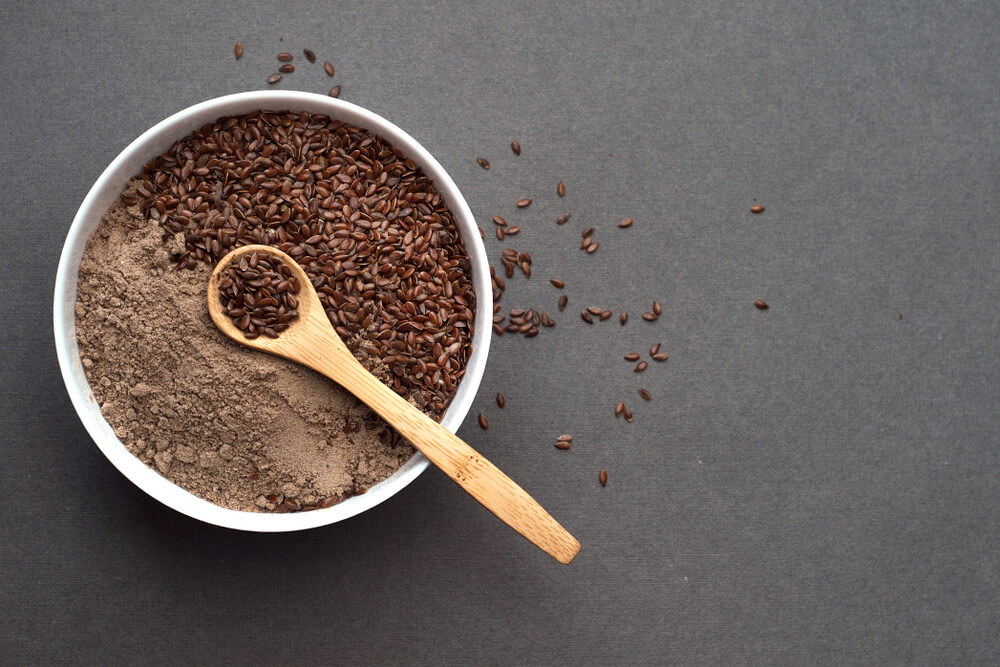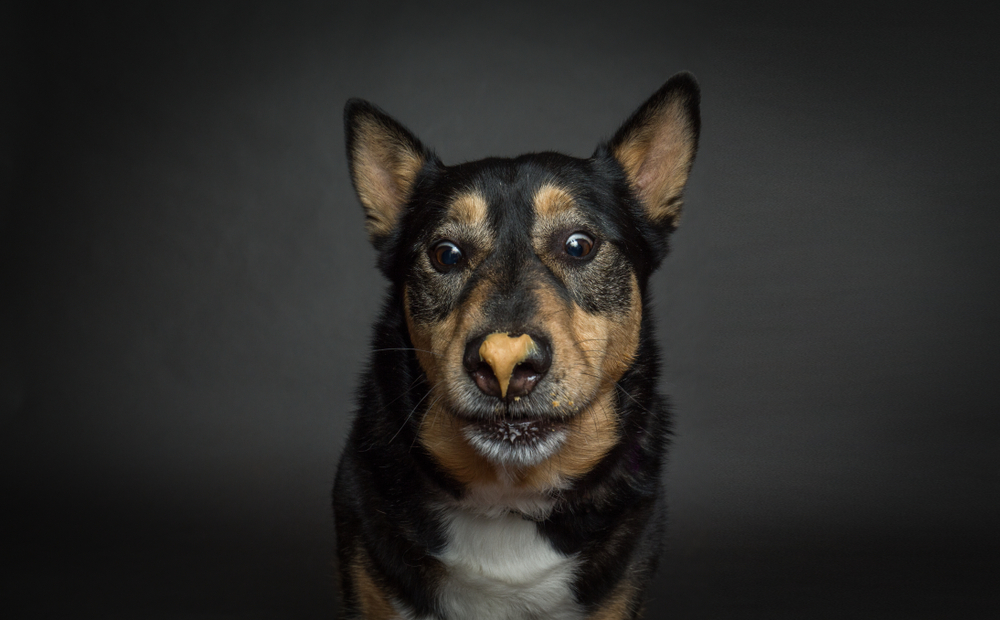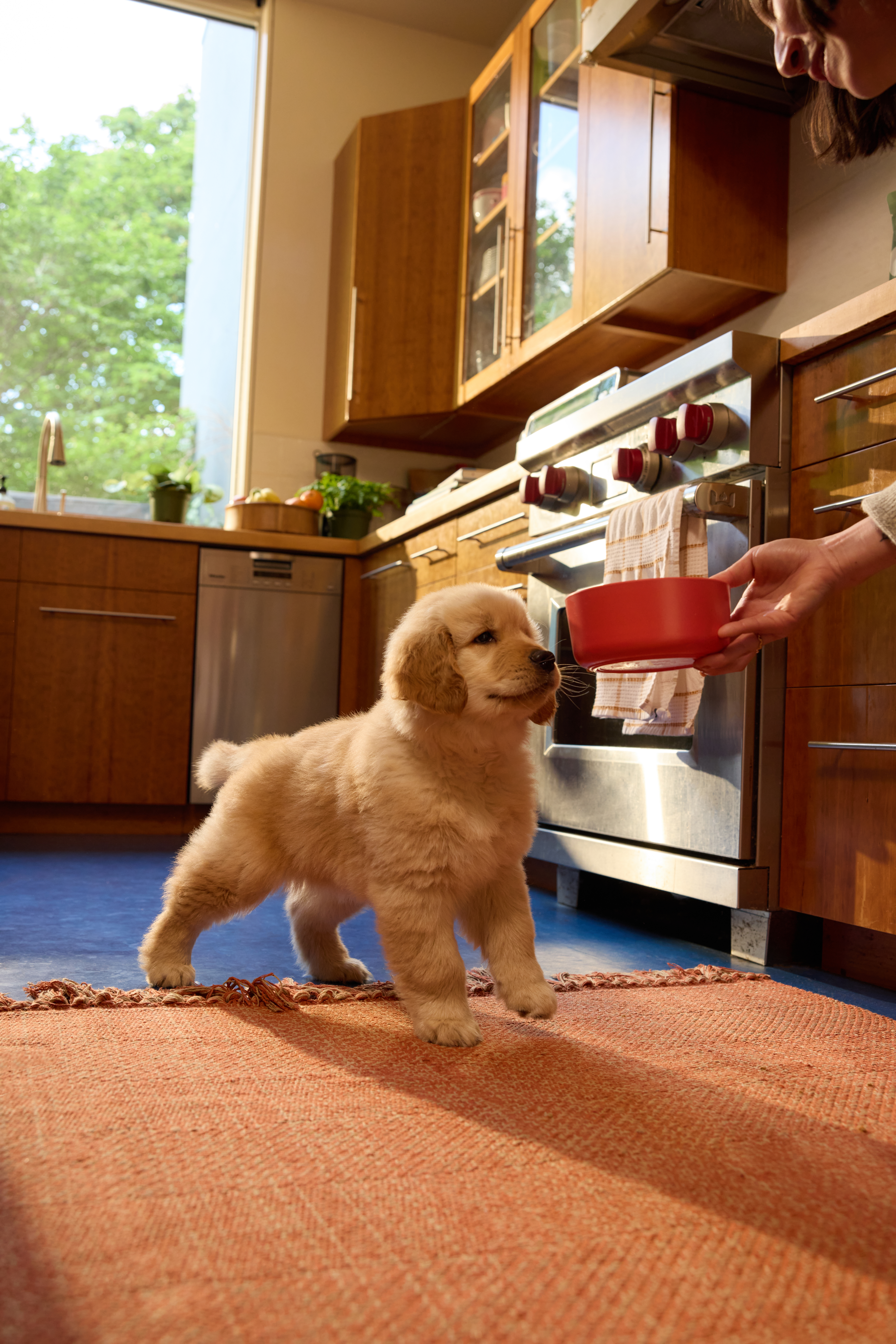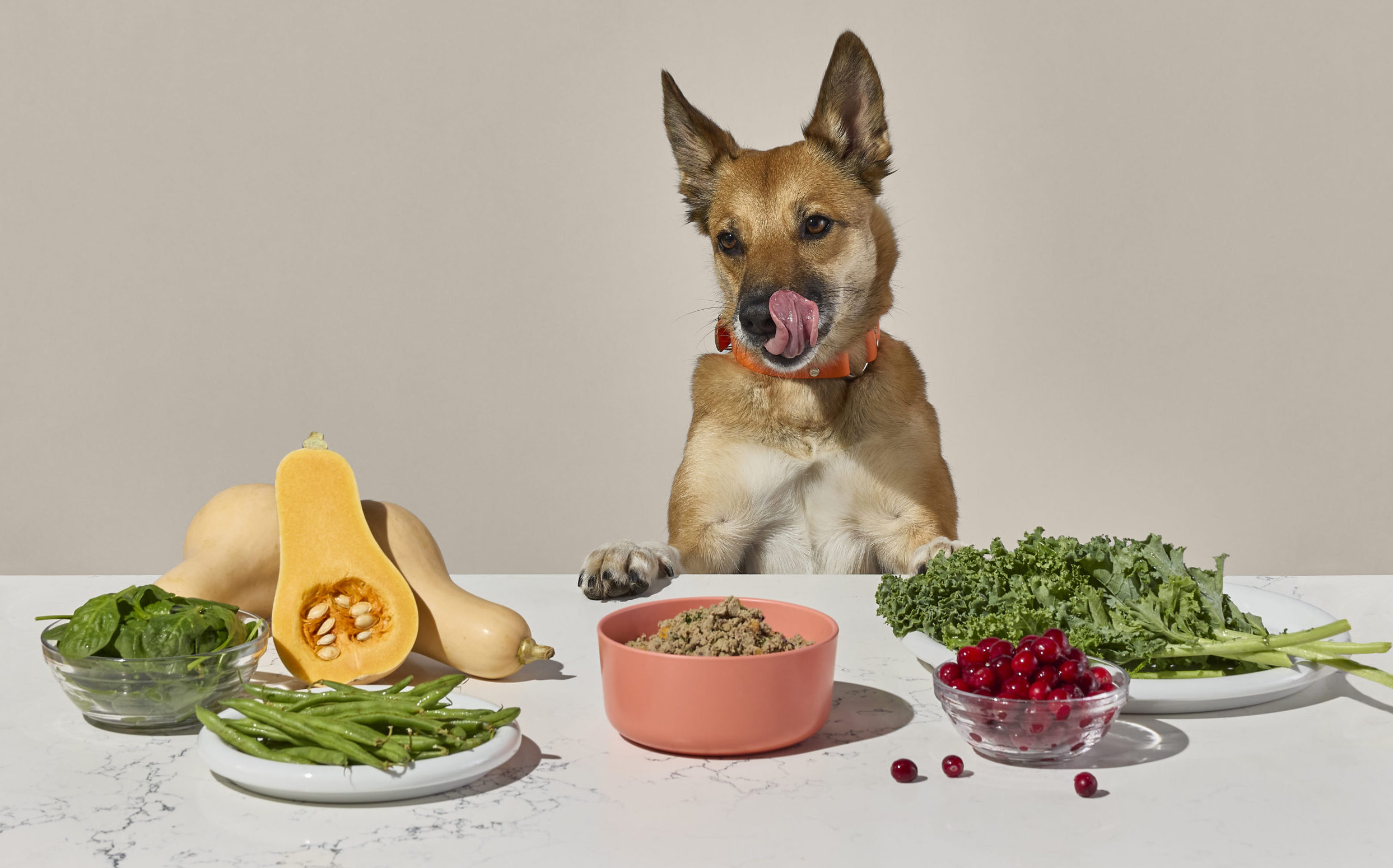Hey Ollie blog readers! We’re offering you an exclusive 60% OFF your starter box! Try now!
Flaxseed or simply Flax is often promoted as a superfood. It contains fat, protein, fiber, and minerals. Flaxseed helps protect against diabetes and some forms of cancer. You can use the seeds whole, ground, or even in the form of flaxseed oil. You may have started to see dog food or treats that tout flaxseed as an ingredient. Can your dog benefit from this superfood the same way you can? We asked the experts to weigh in on the pros and cons of flaxseed for dogs.
Can dogs eat flaxseeds?
Absolutely! Flaxseed is filled with Omega 3 and Omega 6 fatty acids. These fatty acids help keep your dog’s coat shiny and skin healthy. Flaxseed also contains alpha-linolenic acid, which is known for its anti-inflammatory properties – which can give your dog’s immune system a boost!
To get the most bang for your buck, grind the seeds before you share them with your pup. The whole seeds will pass through your dog’s digestive system. Know that shortly after you grind them, flaxseed can go rancid. For this reason, you may want to grind the seeds “to order” or just before you feed them to your pet!
Like any new food, introduce flaxseed slowly so as not to upset your dog’s stomach. If you want to try incorporating flaxseeds into a delicious treat for your best friend, try these Blissful Banana Vegan Dog Biscuits from Kathy Hester for Healthy Slow Cooking.
Vegan Banana Dog Biscuits Recipe
Ingredients
- 2 tablespoons ground flaxseed
- 1 cup rolled oats or Irish oats, which are stone-ground
- 1 cup whole wheat flour
- 1 teaspoon cinnamon
- 1/4 teaspoon salt
- 1/3 cup melted coconut oil
- 1 large banana mashed
- 1/4 cup water
Instructions
- Oil a large cookie sheet or cover with parchment paper and preheat the oven to 350 degrees.
- Add the flaxseed, oats, flour, cinnamon, and salt to a mixing bowl or mixer. Mix until well combined.
- Add in the coconut oil and banana, then mix it well, add 1/4 cup water and mix more. The dough will be thick, and it’s easier to mix in a mixer. If you are mixing by hand, you may need to add a little extra water to get it to come together.
- Measure 1 tablespoon of cookie dough and flatten on the cookie sheet. I use a cookie scoop and flatten with the back of a wooden spoon. Repeat until you use up all the dough.
- Bake for 20 minutes.
Health Benefits of Flaxseed
The essential fatty acids and antioxidants in flaxseeds have many benefits for dogs. These include:
- Healthy coat and skin
- Healthy immune system
- Healthy joints
- Kidney health
- Adrenal support
You’ll want to follow any supplement dosing directions or discuss adding flax to your dog’s diet with your vet to ensure your pup is getting the right dosage for their size.
What is flax poisoning?
Flax poisoning is possible if your pet ingests too much flaxseed or oil. When fed properly, flax poisoning is not common, and you should not worry about it too much. Flaxseeds are a type of food and generally well tolerated by dogs. Factors that can contribute to flax poisoning include:
- Giving too much flaxseed supplement
- Your dog chewing open the bottle of flaxseed capsules and eating too many
- Too much raw flaxseed
- Eating flax plants from your garden
To prevent your dog from getting flax poisoning, consult your vet about the proper type and dose of flax before giving it to your pet. Keep any bottles of seeds, oils, or supplements away from your pet; that way, your dog can’t help themselves. While flax is not a common plant in many home gardens, keep your pet out of the garden beds if it is something you’re growing
Symptoms to look for if you think your dog has flax poisoning.
The most common symptoms of flax poisoning are vomiting and diarrhea. These symptoms might resolve themselves without any medical intervention. Monitor your dog to make sure they start feeling better within 24 – 48 hours. If you have any concerns contact your dog’s vet. Other symptoms to watch for include:
- Rapid heartbeat
- Shortness of breath
- Trouble walking
- Seizures
- Paralysis
If your dog is experiencing any of these symptoms, seek medical treatment immediately.
Treatment and recovery for flax poisoning
If your dog requires treatment for flax poisoning, your vet may induce vomiting. It is safer for this to be done in a vet’s office under the supervision of medical professionals than at home.
If your pet has cyanide poisoning from consuming too much flax, they’ll need to be treated immediately. Sodium nitrate and sodium thiosulfate will be given as an antidote as well as additional oxygen to supplement breathing.
If your dog has dermatitis from contact with the raw plant, you can gently wash the affected area. Your vet may direct you to use a topical ointment for more severe symptoms.
Most dogs will recover from flax poisoning. The risk of cyanide poisoning is more likely if raw flax products are eaten — but it is still VERY rare.
The Ollie blog is devoted to helping pet parents lead healthier lives with their pups. If you want to learn more about our fresh, human-grade food, check out MyOllie.com.
Tagged As:

The nutrition your dog needs,
the food they want.

Enjoying our articles? Subscribe our Newsletters and get new articles directly to your inbox
You might also like
21 July 2025
6 MINS READ
Can Dogs Eat Nuts? Which Nuts Are Safe & Serving Guide
Can dogs have nuts? Some nuts are fine in moderation, but others can cause serious harm. This quick guide breaks down which nuts are safe for dogs, which to skip, and how to feed nut butters respon…
18 July 2025
4 MINS READ
New Puppy Diet Recommendations for Healthy, Happy Growth
As a new pup parent, one of the biggest ways you can support your puppy’s long-term health is by providing the right nutrition. A puppy’s dietary needs are different from an adult dog’s, and…
by Ollie Pets
18 July 2025
5 MINS READ
How Human-Grade Dog Food Benefits Your Pup’s Health and Happiness
You’ve likely heard the term “human-grade” dog food, but what does it really mean, and is it worth it? Choosing human-grade food can be a significant investment for your dog’s long-term he…
by Ollie Pets







